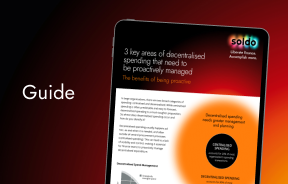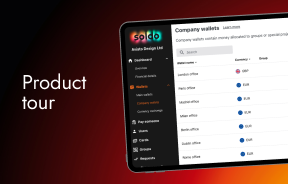The continued unpredictable economic outlook means that benchmarking should be a priority in 2023 and beyond.
Investors now look how you are faring across various measures. This includes your historical performance, comparable companies, and the broader economy.
Additionally, there is now more competition than ever in the UK market. Almost a million a million new companies formed in 2022. That’s an increase of 4.3% from 2021. This activity is being driven by digital tools, making it easier than ever to start and grow a business.
Benchmarking will help improve your performance, gain you a strategic advantage in the market and ultimately make you more sustainable to survive and thrive over the longer term.
While it can be time-consuming to set up benchmarking processes and analyse data, doing so has the potential to save nearly 7% of revenue.
This article will examine:
What is benchmarking?
Benchmarking is a multifaceted data-driven way to measure the success of your business. The underlying approach requires you to compare your recent output against something else.
It should cover a range of factors, including financial performance and non-financial measures, such as customer satisfaction and quality measures.
Reviewing your performance in the context of benchmarking will give you a better understanding of your strengths and areas for improvement.
Why is benchmarking important?
Success can be subjective. But using a data-driven benchmarking approach ensures your company collectively works towards a common set of quantifiable goals. This ensures everyone is working towards the same targets.
Employees can be motivated to hit benchmark targets by a company-wide bonus being paid out if they are exceeded. For example, this may include benchmarking annual revenue growth by 20% if you are in a fast-growing sector.
Benchmarking can also identify gaps in your performance that require improvement if you are falling below the standard. If you are a SAAS-based business, you’ll likely want to benchmark customer satisfaction levels. Deteriorating or poor performance can have a knock-on effect on acquiring new customers and missing out on future revenues from existing ones.
Types of benchmarking
Competitor benchmarking
Comparing your results and KPIs against your competitors will allow you to assess your performance against the wider industry.
You can define your competitors in several ways, including by sector and company size. If you are a local business that predominantly generates sales in person, you may also want to consider geographical reach.
Once you can compare data points against your competitors, you can assess which elements of your business to adjust to remain competitive and capture as large a share of the market as possible.
Competitor benchmarking can be challenging as it can be hard to find reliable data. While all companies must file publicly available accounts at Companies House, only large companies have to file full versions.
Data from competitors’ social media activity can be helpful for non-financial metrics but will likely require specialist tools.
Internal benchmarking
Internal benchmarking requires you to assess your previous results against your current performance.
This lets you see if the business is improving or whether specific areas, such as sales or profitability, require improvement.
The widespread availability of real-time financial data, powered by cloud accounting software and spend management tools like Soldo, means that internal financial data is more accessible than ever. So you can benchmark and optimise performance as frequently as you like.
Strategic benchmarking
Strategic benchmarking is when you compare yourself against businesses outside your sector to companies delivering a world-class performance.
Adapting your processes to be like these superstars will elevate you to a standard beyond what is expected in your sector.
Using strategic benchmarking, the cereal manufacturer Kelloggs have generated cost savings representing 6%-7% of their annual run rate.
What gets measured gets managed
As Peter Drucker, the father of management thinking, said, “What gets measured gets managed.” This illustrates the importance of using benchmarking to reach and exceed company goals.
However, given data is now so prevalent, it’s equally important to ensure you are benchmarking and measuring the most relevant data points.
In the companion piece to this post, we’ll explore some practical ways to get started in your benchmarking journey.
Now’s the time to rethink expense management
Almost two-thirds (62%) of employees say reimbursement should be replaced with a system of company cards. Get your copy of The Cost of Business Crisis to find out more.

























